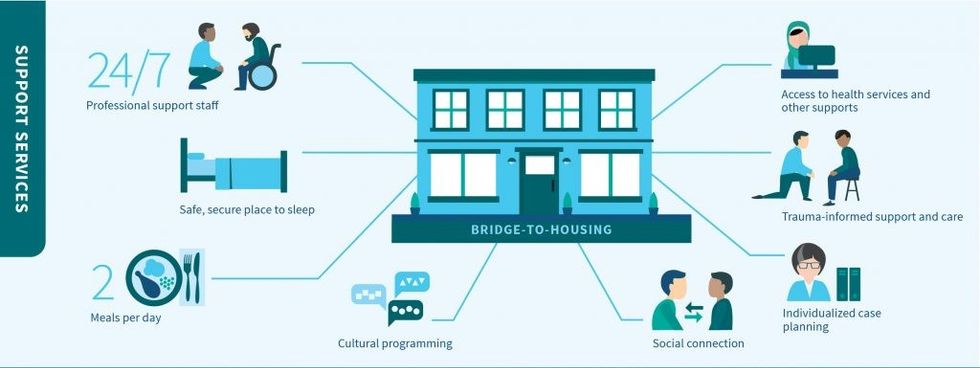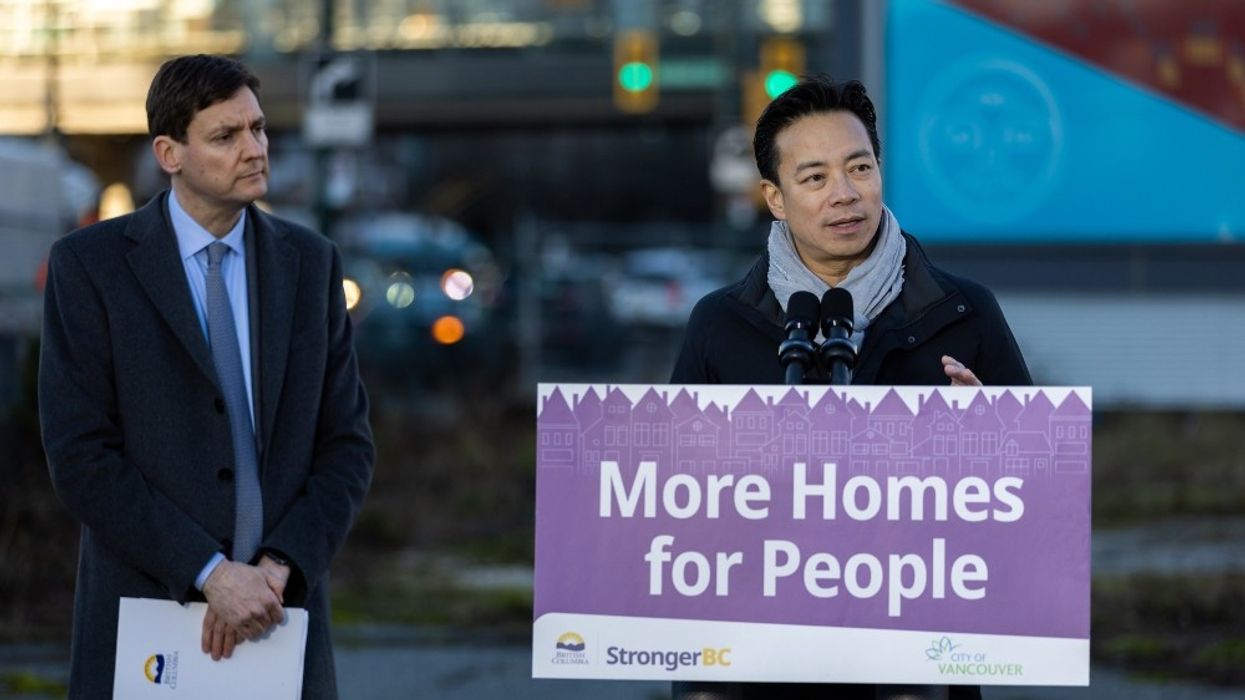After a year of the Vancouver Downtown Eastside (DTES) dominating news cycles and political campaigns -- on both the municipal and provincial level -- the City of Vancouver and the Province of British Columbia outlined their first actions to address housing and homelessness in the DTES since Mayor Ken Sim and Premier David Eby assumed their offices.
The Province, through BC Housing, is partnering with the City of Vancouver to create two temporary housing projects with 90 spaces that will be offered to those currently living in shelters and encampments such as the one that formed on East Hastings Street this summer.
The two projects will also act as a point-of-service to help transition those people into long-term housing. Support services will include two meals a day, individualized case-planning, trauma-informed care, 24/7 access to health services, access to a social community, and cultural programming.

Eby and Sim were joined by Minister of Housing Ravi Kahlon, and MLA for Vancouver-Mount Pleasant Melanie Mark to make the announcement at the location of the first project: 1500 Main Street, near Thornton Park and Pacific Central Station. The site is currently a vacant lot, but has significance because it's adjacent to the site of Vancouver's first temporary modular housing building, on 220 Terminal Avenue.
The site of the second project is 2132 Ash Street, near West 2nd Avenue and Cambie Street, a few blocks north of Vancouver General Hospital. The site is home to an existing temporary modular housing building, called Margaret Mitchell Place, with the new temporary building planned for the parking lot of the building.
According to BC Housing, both buildings will include shared amenity spaces, shared bathrooms, and a communal kitchen, and will be similar to modular housing buildings used in mining and logging operations. The 1500 Main Street project will have 60 units, while the 2132 Ash Street project will have 30 units. They will likely be a significant step up from the City's notorious Single Room Occupancy (SRO) buildings, where fires are a regular occurrence.
"We are in the midst of one of the greatest crises facing our city’s history," said Mayor of Vancouver Ken Sim. "Today's announcement from the Province makes meaningful progress toward achieving our shared goal of securing quality housing for our city's most vulnerable residents."
In the run-up to the October municipal elections, the East Hastings Street encampment and the seemingly-worsening homelessness and housing problem in the Vancouver DTES was a consistent topic that arose in mayoral debates. Sim was particularly critical of the City's SRO buildings, (accurately) pointing out that several of them are bad enough that those experiencing homelessness choose living in tents on the streets over them.
RELATED: New BC Poll Shows Disagreement On Government Handling of Homelessness
Similarly, as Eby was running for NDP Leader to succeed John Horgan as BC Premier, he ran on a housing-focused platform with actions to address homelessness such as building more temporary housing faster and improving support services. Since he's assumed office, Eby has also made the Ministry of Housing a standalone ministry. He named Ravi Kahlon as the Minister of Housing, asking Kahlon in a mandate letter to, among many things, expand homelessness supports and long-term housing that can address the encampments.
"We need to do more to help people off the street, into dignified shelters and then into stable housing where they can access health supports and rebuild their lives," Eby said on Wednesday.
"These supported homes will help people move from shelters to transitional housing and get the supports they need to stabilize their lives and make long-term housing a reality," Kahlon added.
The housing projects won't arrive in time for the grueling winter ahead, where shelters are already low on space and expecting to have to turn away up to 20 people a night come January, but the modular approach will allow for quick delivery, with both projects expected to open in March 2023 and will be in place for at least three years.





















